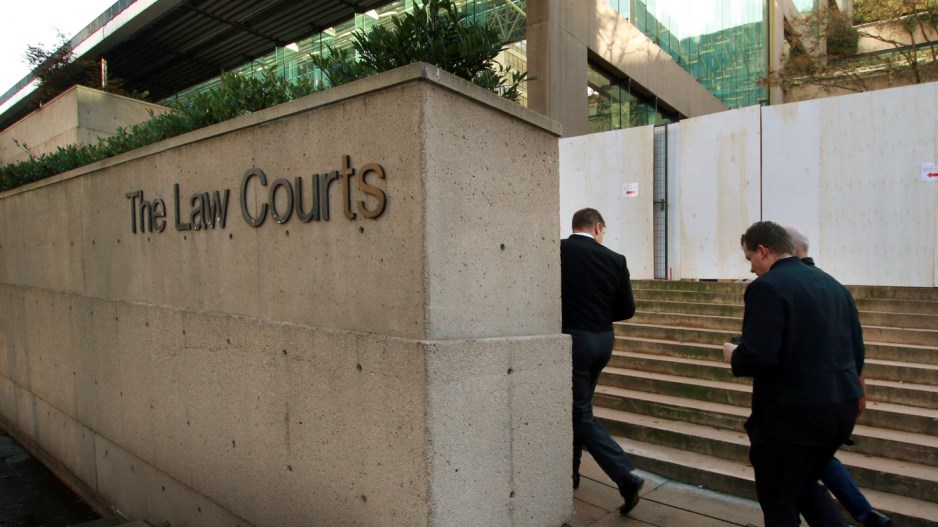An independent lawyer has made 25 recommendations to B.C.’s government for improving B.C.’s legal aid system – including legal clinics, a targeted criminal law aid system and expanded availability of lawyers for families.
Legal aid is not broken in B.C. It has simply lost its way,” author Jamie McLaren said in the report released Monday. “Years of underfunding and shifting political priorities have taken their toll on the range and quality of legal aid services, and especially on the people who need them. Still, the will exists in B.C. to make legal aid more accessible and effective for all of its many users.”
Richard Fowler of the Association of Legal Aid Lawyers (ALL) said the report’s title - Roads to Revival – is telling.
“The report recognizes that our province needs to do a much better job of providing legal aid, and that this can only happen with significant investment,” Fowler said.
That’s a comment that has been made repeatedly over decades as different government’s have tackled the issue.
What will happen this time, however, remains to be seen as Attorney General David Eby continues to review the report.
McLaren’s other recommendations include:
• Developing and launching an online client portal to accept legal aid applications, to diagnose and treat clients’ legal problems, and to empower clients in the active management of their own cases;
• Engaging the Office of the Auditor General to perform a value-for-money audit of legal aid service provider Legal Services Society (LSS) operations;
• Broadening the scope of Indigenous legal aid services to include more preventative services that are not premised on agreeing to state intervention or correction, which impose stigma;
• Creating a Child Protection Clinic to help parents before child protection concerns reach the level of Ministry of Children & Family Development intervention, and to serve as a practice resource centre for lawyers representing parents in contested child protection matters;
• Creating a Criminal Resource Centre at the Criminal Law Office offering free access to tariff lawyers, pro bono lawyers and other legal aid service providers, and provides space for co-working and training as well as resources for legal research and practice management, and :
• Developing a major case team of LSS staff lawyers and paralegals to provide in-house capacity and to support tariff lawyer capacity for long and complex criminal case work.
Eby announced McLaren’s review in October.
Veteran lawyer Len Doust covered some of the areas addressed by McLaren in 2011 after 10 months’ work. Doust made nine recommendations.
Included were suggestions legal aid be recognized as an essential public service, that core services and priorities be defined; financial eligibility should be modernized and expanded; regional legal aid centres and innovative service delivery should be established; and that public engagement and political dialogue needed expanding.
McLaren said his ability to do the review was limited by time, geography and a limited study sample size. He said he did not have time to meet the many legal aid stakeholders.
“Wherever possible, I consulted with people at their workplaces to better understand the context of their experiences. The 240 individuals who engaged with my review work or live in 37 different B.C. municipalities.”
Time constraints also constrained his opportunity to meet legal aid clients.
“I did my best to compensate for this limitation by engaging at length with frontline lawyers and legal advocates, and by reviewing LSS’ extensive library of client surveys. I also drew from my own experience of serving about 1,500 low-income clients over thirteen years as a pro bono clinic lawyer in Vancouver’s Downtown Eastside.”
Fowler said his group fully agrees with much of the report.
“Firstly, that legal aid is an essential element of a fair, humane and efficient justice system based on the rule of law,” he said. “Secondly, as we have been saying for a long time, years of underfunding have taken a toll on the quantity and quality of legal aid services.”
Fowler commended McLaren for recognizing LSS as a “high-functioning organization that does as well as it can with the current levels of funding.”
He agreed with McLaren’s supporting the LSS being independent from Government, a point ALL has also strongly encouraged.
“ALL would also support the development of an independent agency to collect and analyze data across the whole justice system,” he said. “Many other recommendations are made and we are continuing to analyze them.”
Reporter Jeremy Hainsworth can be contacted at [email protected]




